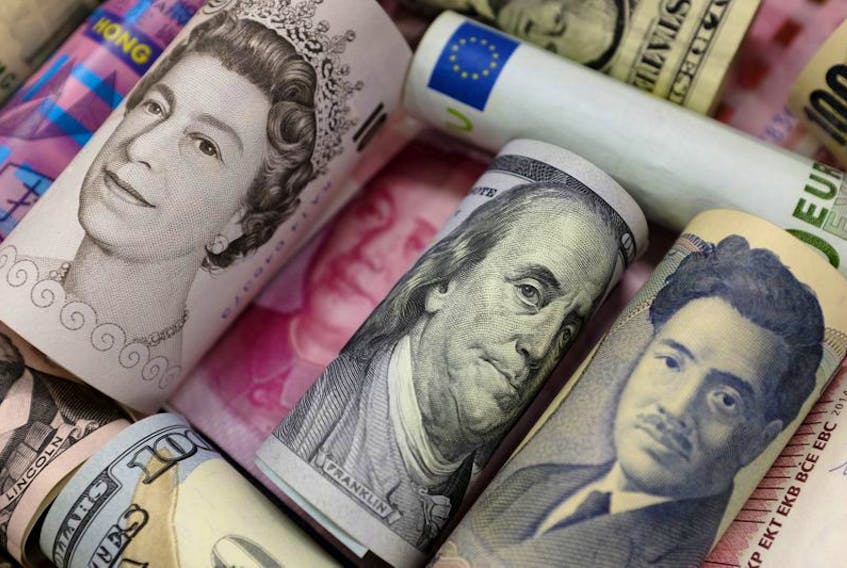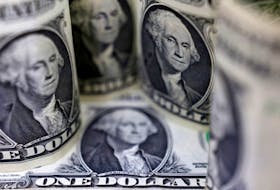By Karen Brettell
NEW YORK (Reuters) - China's yuan weakened on Tuesday and the Japanese yen reversed earlier losses after a report that the United States will keep tariffs on Chinese goods through the U.S. election hurt risk sentiment.
The news came a day before the signing of a preliminary U.S.-China trade agreement to ease an 18-month-old trade war.
Bloomberg News reported that the United States will review and remove existing tariffs no sooner than 10 months after the deal is signed.
The U.S. Treasury Department on Monday reversed its designation of China as a currency manipulator in what has been seen as a conciliatory gesture ahead of the deal signing.
Risk sentiment has improved and demand for safe-haven assets like the yen have decreased on signs that the two countries are closer to de-escalating the trade war that has been blamed as a major headwind to global growth.
The trade deal "doesn't address the structural issues, but at least for markets it reduces some of the stress and some of the anxiety and uncertainty that plagued the markets throughout 2019," said Mark McCormick, North American head of FX strategy at TD Securities in Toronto.
The yen
The offshore yuan
The Swiss franc
The greenback rose against the euro as year-end rebalancing that had benefited the single currency at the expense of the dollar continued to be unwound.
"We are getting some of the reversal of that, along with, I think the macro story in Europe is still generally weak," McCormick said.
The euro
Data on Tuesday showed that U.S. consumer prices rose slightly in December and monthly underlying inflation pressures retreated, which could allow the Federal Reserve to keep interest rates unchanged at least through this year.
The next major U.S. economic focus will be retail sales on Thursday.
(Reporting by Karen Brettell; editing by Jonathan Oatis and Richard Chang)









